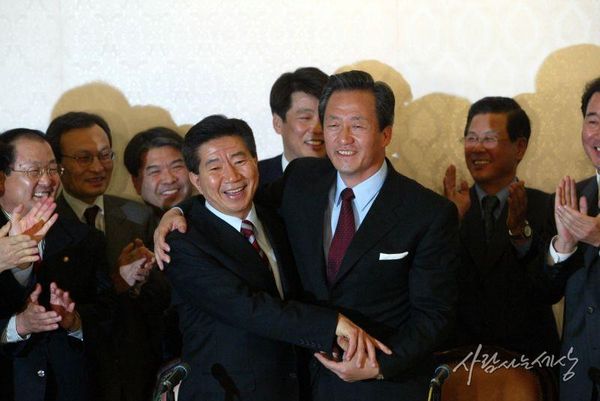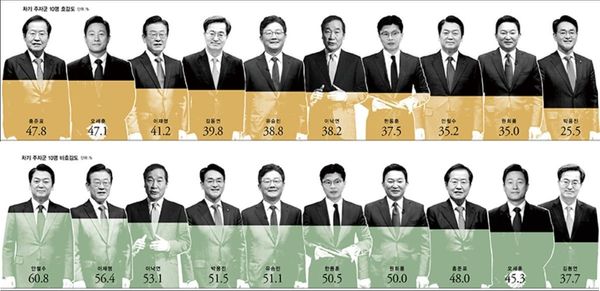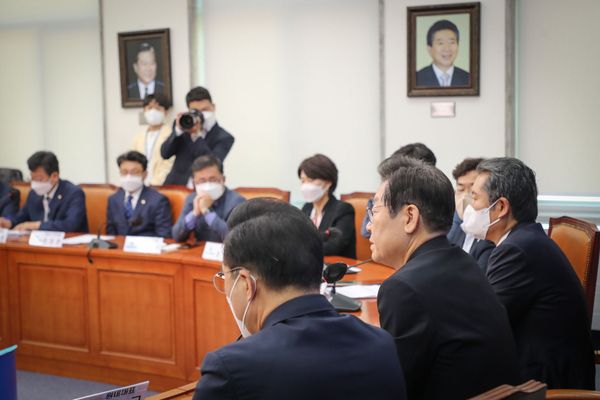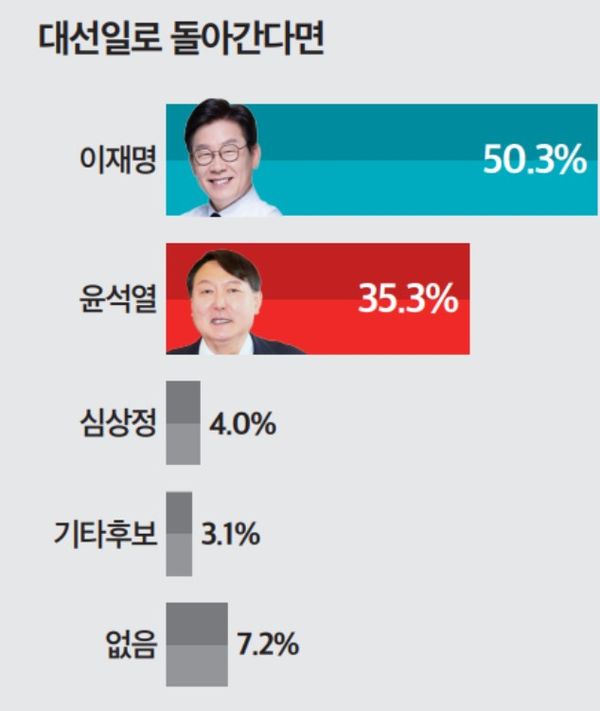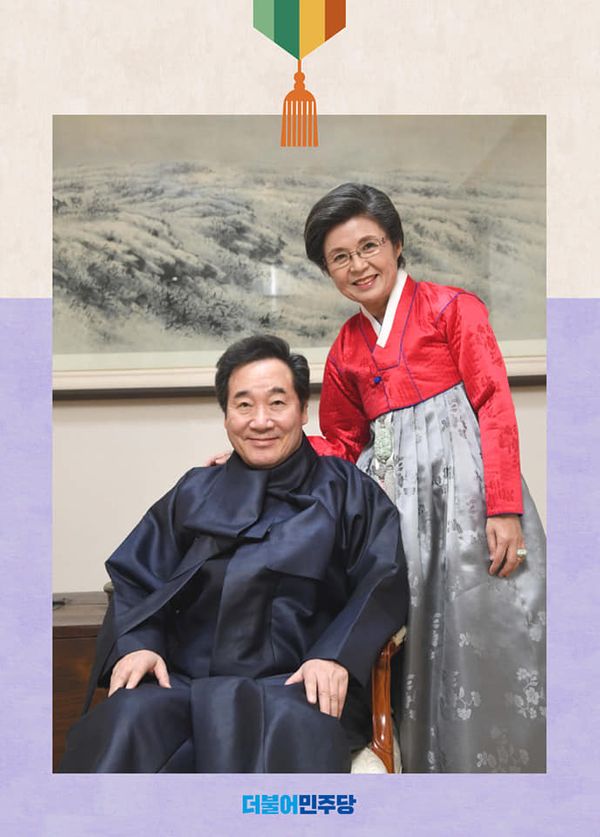Like the rest of the world, South Korea has its share of dodgy opinion polls, attempting to drive the public opinion rather than gauging it accurately. Moreover, even a reputable polling company may produce differing results, based on polling method, sample size and relative weighting practice. Even more complicated, the same polling company may use different methodologies to produce different results.
For example, Gallup Korea’s poll from November 16 to 18 showed Democratic nominee Lee Jae-myung 이재명 민주당 대선 후보 trailing significantly behind People Power Party nominee Yun Seok-yeol 윤석열 국민의힘 대선 후보, 27% to 34%. But in Gallup Korea’s poll from November 22 to 23, the two candidates were neck and neck, 37.1% to 38.4%. Yet it would be incorrect to interpret these two polls in a linear fashion, and say Lee made a big gain within a week. The first poll, which Gallup Korea conducted for itself as a regular weekly survey, was conducted via phone interview based on the random direct dial (RDD) sample. The second poll, which Gallup Korea conducted on behalf of Money Today, was conducted via automated route selection (ARS) phone calls, in which the respondents gave their answers to a pre-recorded call. The different methods and different samples of the two polls make it inappropriate to juxtapose them linearly, even though they were conducted by the same polling company.
At TBR, we regularly feature three polling houses: Gallup Korea 한국갤럽, RealMeter 리얼미터, and NBS 전국지표조사. All three are reputable companies that conduct regular weekly surveys that allow us to make an apples-to-apples linear comparison from one week to the next. RealMeter partly relies on automated phone calls, which tends to over-sample high-engagement voters. Gallup Korea and NBS conduct phone interviews, but the ways in which the two polling houses select their samples are slightly different. (Gallup Korea samples via random direct dial, while NBS samples from virtual phone numbers.) This means that usually, RealMeter figures move in advance of the figures of Gallup Korea and NBS, and RealMeter figures are more responsive to the latest news compared to those from Gallup Korea and NBS.
In addition, during the presidential election season, TBR will also feature the weekly poll-of-polls from MBC and Money Today. The two polls-of-polls employ their own method of weighting each poll based on its reliability, which may result in different figures.



